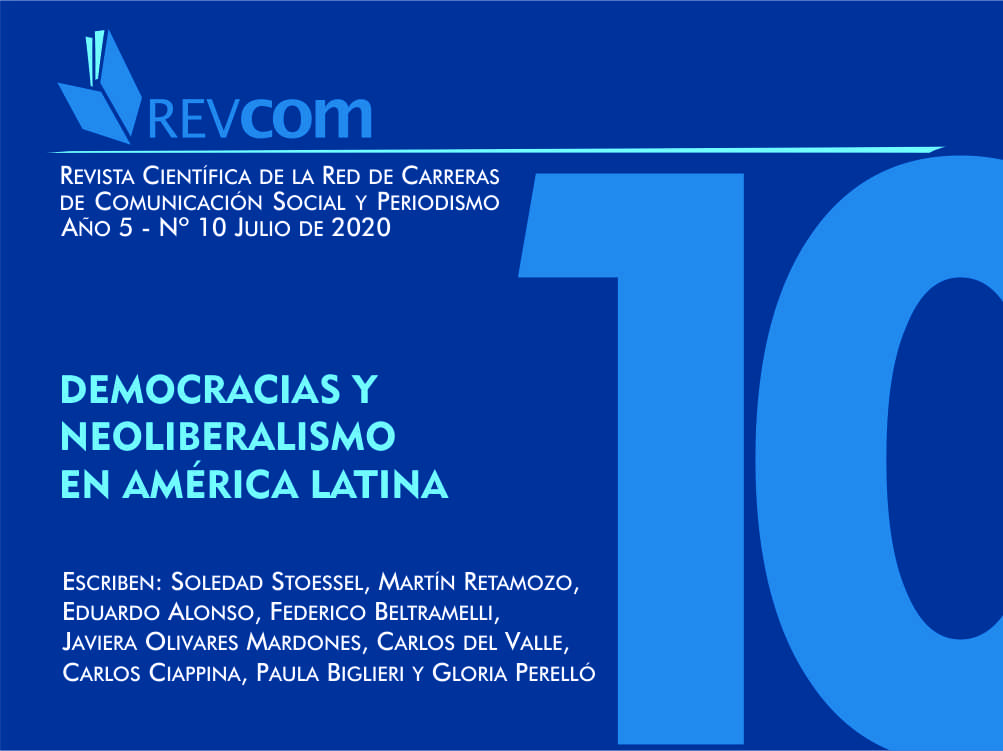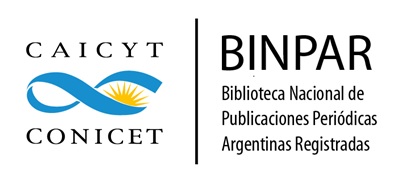Neoliberalism, democracy and subjectivity
The people as fundament, strategy and project
DOI:
https://doi.org/10.24215/24517836e026Keywords:
Neoliberalism, subjectivity, the people, popular sovereigntyAbstract
The aim of this paper is to answer two questions. The first one is how to think about the contemporary neoliberal order, and the second, how to challenge it when it seems to persist through different devices and techniques. The neoliberalism has operated as a mode of regulation, a rationality and a subjectivity throughout time. The ways of tackling it, then, must contemplate these three dimensions. By means of elections it is possible to solve the first one. In order to face the other dimensions, it is necessary, instead - and this is the hypothesis of this paper- to build the "people" as a subject that works as foundation, strategy and project in the perspective of restoring the link between popular sovereignty and social justice, within the framework of democratic institutions.
Downloads
Metrics
References
Beasley-Murray, J., Cameron, M. y Hershberg, E. (2009). “Latin America’s Left Turns: an introduction”. Third World Quarterly, Vol. 30, Nº 2, 2009, 319–330.
Benente, M. (2020). De la revolución democrática al golpe de estado y la contrarrevolución. Bordes, Revista De Política, Derecho y Sociedad, 45-51.
Biglieri, P y Cadahia, L. (en prensa). Seven essays on populism. London: Polity Press.
Boyer, R. (2007). Crisis y régimen de crecimiento: una introducción a la teoría de la regulación, Buenos Aires, Ed. Miño y Dávila, CEIL-PIETTE, CONICET.
De Gori, E., Gómez, A. y Ester, B. (2017). Gobiernos progresistas en América Latina: cambios y permanencias tras un período de estabilidad. En J. Á. Sotillo y B Ayllón (Coords.), Las transformaciones de América Latina (pp. 17-33). Madrid: Los Libros de la Catarata.
Domenech, A. (2004). El eclipse de la fraternidad: Una revisión republicana de la tradición socialista. Barcelona: Crítica.
Dubet, F (2016). ¿Por qué preferimos la desigualdad? (aunque digamos lo contrario). Buenos Aires: Editorial Siglo XXI.
Federici, S. (2004). Calibán y la bruja. Mujeres, cuerpo y acumulación originaria. Madrid: Traficantes de Sueños.
Gago, V. (2014). La razón neoliberal. Economías barrocas y pragmática popular. Buenos Aires: Tinta Limón.
García Linera, A. (2017). ¿Fin de ciclo progresista o proceso por oleadas revolucionarias? Portal digital Pulso de los pueblos. Recuperado de http://pulsointernacional.com/fin-de-ciclo-progresista-o-proceso-por-oleadas-revolucionarias-por-alvaro-garcia-linera/
Gramsci, A. (1999). Cuadernos de la cárcel. Puebla: Ediciones Era/Benemérita Universidad Autónoma de Puebla.
Giordano, V. (2014). ¿Qué hay de nuevo en las «nuevas derechas? Nueva Sociedad, Nº 254, 46-56.
Grosfoguel, R. (2013). “Racismo/sexismo epistémici, universidades occidentalizadas y los cuatro genocidios/ epistemicidios del largo siglo XVI”. Tabula Rasa, Nº19: 31-58.
Grugel, J. y Riggirozzi, P. (2012). “Post-neoliberalism in Latin America: Rebuilding and Reclaiming the State after Crisis”. Development and Change, 1, 1–21.
Guattari, F. y Rolnik, S. (2005). Micropolítica. Cartografías del deseo. Madrid: Traficantes de sueños.
Kalyvas, A. (2017). “Soberanía hegemónica: Carl Schmitt, Antonio Gramsci y el príncipe constituyente”. Las Torres de Lucca: revista internacional de filosofía política. Nº 11, 193-248.
Laclau, E. (2005). La razón populista. Buenos Aires: FCE.
Lagarde, M. (2009). “La política feminista de la sororidad”. http://www.mujeresenred.net/spip.php?article1771
Laval, C. y Dardot, P. (2013). La nueva razón del mundo. Ensayo sobre la sociedad neoliberal. Barcelona: Gedisa Editorial.
Levitsky, S. y Roberts, K. (2011). The resurgence of the Latin American left. Maryland: John Hopkkis University Press.
Rinesi, E. y Muraca, M. “Populismo y República. Algunos apuntes sobre un debate actual” en Rinesi, E.; Vommaro, G; Muraca, M. (2010). Si este no es el pueblo. Hegemonía, populismo y democracia en Argentina. Bs As: IEC:
Rodríguez Garavito, C., Barrett, P. y Chávez, D. (2008). The Latin American Left: Utopia Reborn. Londres: Pluto Press.
Svampa, M. (2017). Del cambio de época al fin de ciclo. Buenos Aires: Edhasa.
Torrico, M. (2017). ¿Fin del giro a la izquierda en América Latina? Gobiernos y políticas públicas. México: FLACSO-México.
Vommaro, G. (2017). La larga marcha de Cambiemos. La construcción silenciosa de un proyecto de poder. Buenos Aires: Siglo Veintiuno Editores.
Zemelman, H. (1985). “Política y análisis en René Zavaleta Mercado”. Estudios Sociológicos, Nº 9, pp. 561-573.
Zemelman, H. (2009). Uso crítico de la teoría. En torno a las funciones analíticas de la totalidad. México: Instituto Politécnico Nacional
Published
How to Cite
Issue
Section
License
Copyright (c) 2020 Soledad Stoessel, Martín Retamozo

This work is licensed under a Creative Commons Attribution-NonCommercial-ShareAlike 4.0 International License.
Politica vigente desde octubre de 2019
La aceptación del manuscrito por parte de la revista implica la cesión no exclusiva de los derechos patrimoniales de los/as autores/as en favor del editor, quien permite la reutilización, luego de su edición (postprint), bajo una Licencia Creative Commons Atribución-NoComercial-CompartirIgual 4.0 Internacional (CC BY-NC-SA 4.0)
Acorde a estos términos, el material se puede copiar y redistribuir en cualquier medio o formato siempre que a) se cite la autoría y la fuente original de su publicación (revista y URL de la obra), se brinde el acceso a la licencia y se indique si se realizaron cambios; b) no se utilice el material para fines comerciales.
La cesión de derechos no exclusivos implica que luego de su edición (postprint) en RevCom los/as autores/as pueden publicar su trabajo en cualquier idioma, medio y formato; en tales casos, se solicita que se consigne que el material fue publicado originalmente en esta revista.
Tal cesión supone, también, la autorización de los/as autores/as para que el trabajo sea cosechado por SEDICI, el repositorio institucional de la Universidad Nacional de La Plata, y sea difundido en las bases de datos que el equipo editorial considere adecuadas para incrementar la visibilidad de la publicación y de sus autores/as.
Asimismo, la revista incentiva a los/as autores/as para que luego de su publicación en Revcom depositen sus producciones en otros repositorios institucionales y temáticos, bajo el principio de que ofrecer a la sociedad la producción científica y académica sin restricciones contribuye a un mayor intercambio del conocimiento global.






.jpg)



.png)






















